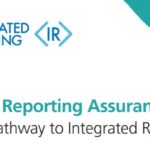BT today published its new social and environmental report and becomes the largest company yet to apply the new AA1000 Assurance Standard for sustainability reporting.
Launched in March this year, the AA1000 Assurance Standard is designed to assure the credibility of social and environmental reporting by guiding companies and auditors through the rigours of non-financial reporting.
BT chief executive officer Ben Verwaayen highlighting the importance of non-financial issues to business success said: "Our key financial goals of improving cash flow, increasing earnings per share and reducing debt are critical. But fundamental to the achievement of these objectives is the underlying strength of BT as a whole – and this can’t always be measured in pound signs.
"Our business strength must be based on passion for customers. However, fulfilling the complete range of customer expectations requires top performance across a full range of issues. Maximising employee motivation, valuing diversity, acting with integrity, reducing our environmental impacts and behaving in a socially responsible manner."
BT’s social and environmental results for the 2003 financial year are captured in ten non-financial key performance indicators:
Customer dissatisfaction reduced by 37 per cent.
Broadband available to 67 per cent of UK households.
People Satisfaction Index steady at 67 per cent.
Increase in the percentage of ethnic minority employees (8.6 per cent) in BT while the percentage of women (24 per cent) and disabled employees (2 per cent) held steady.
Global warming CO2 emissions now 40 per cent lower than 1996.
Waste to landfill down 1.1 per cent to 89,878 tonnes and 24 per cent recycled.
Health and safety significant incident rate down from 126 to 113 per 10,000 full time employees.
Ethical trading risk assessment questionnaires completed by 31 suppliers and 14 on-site assessments undertaken.
Community investment of £8.2 million plus £17.9 million in further funding and support in kind.
Awareness of our Statement of Business Practice in the UK up from 76 per cent to 83 per cent.
The report has been brought into accordance with the Global Reporting Initiative guidelines and includes a new index to navigate the BT site according to the nine principles of the United Nations Global Compact.



